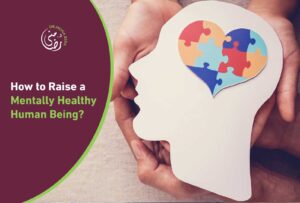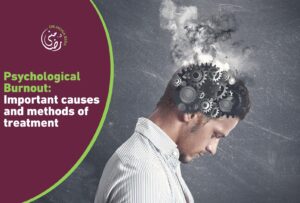Attachment disorder… What is it? How to treat it?
Connecting with others, and building an emotional relationship with them is a positive and necessary thing, but exaggerating it can have many negative effects, as exaggeration in attachment and closeness to people can lead to a pathological passion to them that may reach a disorder, that affects some people who exaggerate their love and attachment to others to the degree of disease.
What is an Attachment disorder?
It is that a person has an exaggerated sense of compulsive attachment to important persons in his life or to his emotional partner, which makes him feel very willing to come close to this partner, and if he feels emotionally distanced by his partner, he is highly Criticize his partner because he isn’t interested in him and indifferent about him, and that attachment gets the other away from him because this causes psychological stress on him.
Attachment disorder is a psychiatric disorder that affects people where the association with others is harmful, especially for the person who links his life and the details of his day completely and radically with the person he is pathologically attached to, this disorder is an acquired behavior, not a pathological condition.
Symptoms of pathological attachment disorder.
Many symptoms appear in those who suffer from pathological attachment disorder, including:
1. Resorting to the person attached to him always and without thinking or hesitation as a haven, source of confidence, and help in solving problems and overcoming them.
2. Inability to decide without referring to the person related to it.
3. Often whining and blaming circumstances and others in case of any problem and inability to confront and admit error.
4. inability to leave the person to whom satisfactorily attached, even if the relationship is unhealthy, harmful, and full of negative feelings and wasted energy.
5. Inability to communicate ideas, information, and feelings fully and correctly with an inherent fear of others.
Causes of pathological attachment disorder.
There are several reasons why a person has an attachment disorder, the most important of which are:
1. Family conflicts and problems:
Problems and disagreements that occur on an ongoing basis in the home, which may reach to beatings, humiliation, and demeaning adversely affect family members, especially children who see the house as an unsafe place to feel stable and comfortable, having to seek another emotional sanctuary that is a source of safety, psychological comfort, and a satisfactory attachment to anyone who gives them love and attention.
2. Exposure to difficult situations:
People who experience difficult situations such as rape, sexual harassment, or physical, verbal, and emotional violence tend to be satisfactorily attached to people who won’t harm them.
3. Inability to express feelings:
A person needs to express his feelings and hear good words, especially from close associates and parents. If they are unable to express freely and clearly their love for each other, the individual will begin looking for other sources that express feelings need, and need to hear.
4. Other personal disorders:
Narcissistic personality disorder, a dependent personality disorder is associated with the onset of attachment disorder; A dependent personality needs to be led and depends on others, a Narcissistic personality needs those who care about him to empower his dependents and control him.
Treatment of Attachment Disorder.
This disorder can be treated in several ways, including:
1. Speak with the person with whom it relates satisfactorily rigorously and clearly in which you explain your displeasure with their exploitation of you and your feelings to resolve the matter and determine the possibility of improving and maintaining the relationship or the need to terminate it.
2. Learn skills that increase self-confidence, and try to appreciate each success even the most basic things.
3. Meet new friends who share interests, hobbies, work, and entertainment with you to spend good times away from attachment.
4. Less emphasis on the other side’s behaviors, because a constant focus on the other side’s actions to gain confidence, may increase anxiety and disorder, especially in those with any type of anxiety.
5. Consult a specialist psychiatrist to treat the disease attachment problem on clear scientific grounds.
So, you can communicate with Dr. Mona Reda, a consultant in mental health and marital relations for good mental health.









